Newborn life throws everything you know about schedules out the window. Late nights might seem like the only option, but there comes a point when an earlier bedtime benefits everyone.
This post will guide you through the evolution of bedtime for your baby, and the signs that show they’re ready to trade in those late-night hours for an earlier bedtime.
Why an earlier bedtime matters
Later bedtimes make sense for newborns. You’re all on the same schedule, minimizing tiptoeing around, and squeezing in one final feeding before bed (hopefully, one less middle-of-the-night wake-up for you!).
But, your friends’ kids all go to bed before the sun sets and you’ve seen online schedules that suggest bedtimes between 7-8pm, so when will that apply to you?
Usually newborn bedtimes don’t just jump from 10pm to 7pm. It should be a gradual approach that works in tandem with your baby’s maturing circadian rhythm.
As your baby grows, their sleep patterns change. Putting your child to bed earlier promotes a healthy circadian rhythm, leading to better sleep for both you and your little one.
Your roadmap to navigate changing sleep needs:
Newborn Stage (0-4 weeks):
- Focus on survival, not schedules. Days and nights blur together – prioritize sleep for everyone whenever possible.
- Bedtime usually happens between 9-10pm
Transitional Stage (4-8 weeks):
- The “witching hour” arrives! Increased daytime alertness leads to fussy evenings.
- Try offering bedtime earlier: This can combat crankiness and establish a more consistent bedtime routine.
- Aim for a 8-9pm bedtime
The Sweet Spot (8-12 weeks):
- Your baby’s sleep consolidates, and a circadian rhythm starts to develop.
- Aim for a 7-8 pm bedtime: This better aligns with their natural sleep cycle.
Signs Your Baby Needs an Earlier Bedtime
Every baby is unique, so watch for these signs, not age, to determine bedtime readiness:
- Evening crankiness: The “witching hour” is a strong indicator. Don’t fight the tears – going to bed earlier might be the answer.
- Long or drowsy last nap: Does your baby struggle to stay awake during the bedtime routine, or constantly need waking from their last nap? This signals a maturing circadian rhythm and a need for an earlier bedtime.
- Early morning wake-ups: Ideally babies sleep 11-12 hours overnight (including feeding). If your baby wakes at 6/7 am and won’t go back to sleep, try putting them to bed earlier to reach that 11-12 hour goal.
Creating a consistent sleep schedule for your newborn can feel overwhelming. That’s why I created my ultimate schedule guide to help you navigate these transitions! This downloadable resource includes sample schedules that start as early as 2 weeks old.
These customizable schedules explain why and when to transition to the next one, giving you a roadmap to a better night’s sleep for everyone.









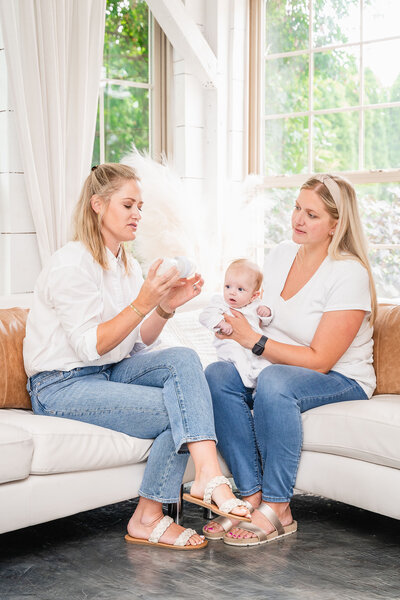
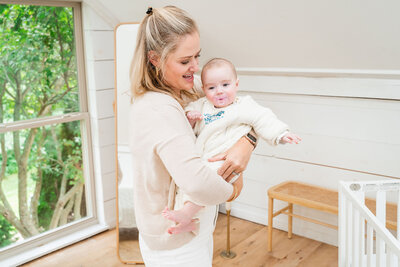










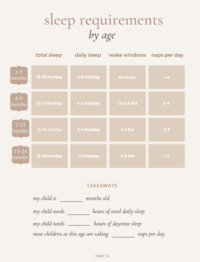
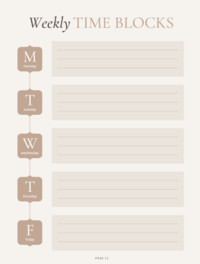
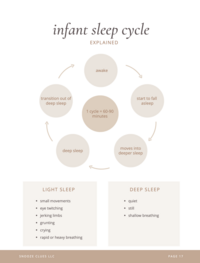



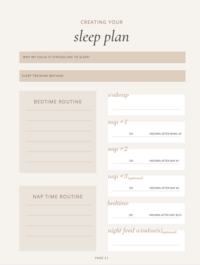

Read the Comments +